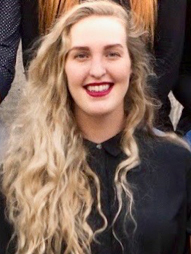sullivan howard
 During my time as an undergrad in HSP, I was selected as a Dee Foundation Scholar
from the Office of Undergraduate Research to work with renowned faculty mentor, Akiko
Kamimura, on a research project entitled “Opioid Abuse Amongst Uninsured Patients Utilizing a Free Clinic.” The “opidemic” is a systemic societal malady. The purpose of our study was to examine factors leading to the abuse of narcotics
by individuals of lower SES. The participants examined in this study attended a local
free clinic, where no opioids were prescribed. We look forward to securing data regarding
how individuals obtain said narcotics and what covariates might present. After learning
the outcome measurements, an educational tool will then be implemented for patients
attending the free clinic, to which we aim to see a decrease in reported opioid abuse.
During my time as an undergrad in HSP, I was selected as a Dee Foundation Scholar
from the Office of Undergraduate Research to work with renowned faculty mentor, Akiko
Kamimura, on a research project entitled “Opioid Abuse Amongst Uninsured Patients Utilizing a Free Clinic.” The “opidemic” is a systemic societal malady. The purpose of our study was to examine factors leading to the abuse of narcotics
by individuals of lower SES. The participants examined in this study attended a local
free clinic, where no opioids were prescribed. We look forward to securing data regarding
how individuals obtain said narcotics and what covariates might present. After learning
the outcome measurements, an educational tool will then be implemented for patients
attending the free clinic, to which we aim to see a decrease in reported opioid abuse.
I have been a CNA, MA and phlebotomist since I was 16. I predominantly have worked in the post-acute setting, specifically dementia care, as I love the geriatric population. I work at University of Utah Hospital in the Surgical ICU. I am also involved with another research project aimed at correlating ICU delirium with the patient’s predisposing factors exacerbated by mechanical ventilation and types/duration of sedation.
Initially, I desired to be a Physician Assistant and became the Pre-Physician Assistant Student Organization (Pre-PASO) president on campus, yet through my studies realized that MD is the route for me. I chose the HSP program because of its holistic nature. I’ve always known I wanted to go into some aspect of medicine, and popular pre-med undergraduate programs tend to focus on the microscopic level. The HSP program allows me to understand the factors that are simultaneously the cause and effect of the current health care system climate. My ultimate goal is to be a Geriatrician. The knowledge from this degree will propel me to better understand the human condition and look at every aspect of a patient’s experience navigating through the health care system.
